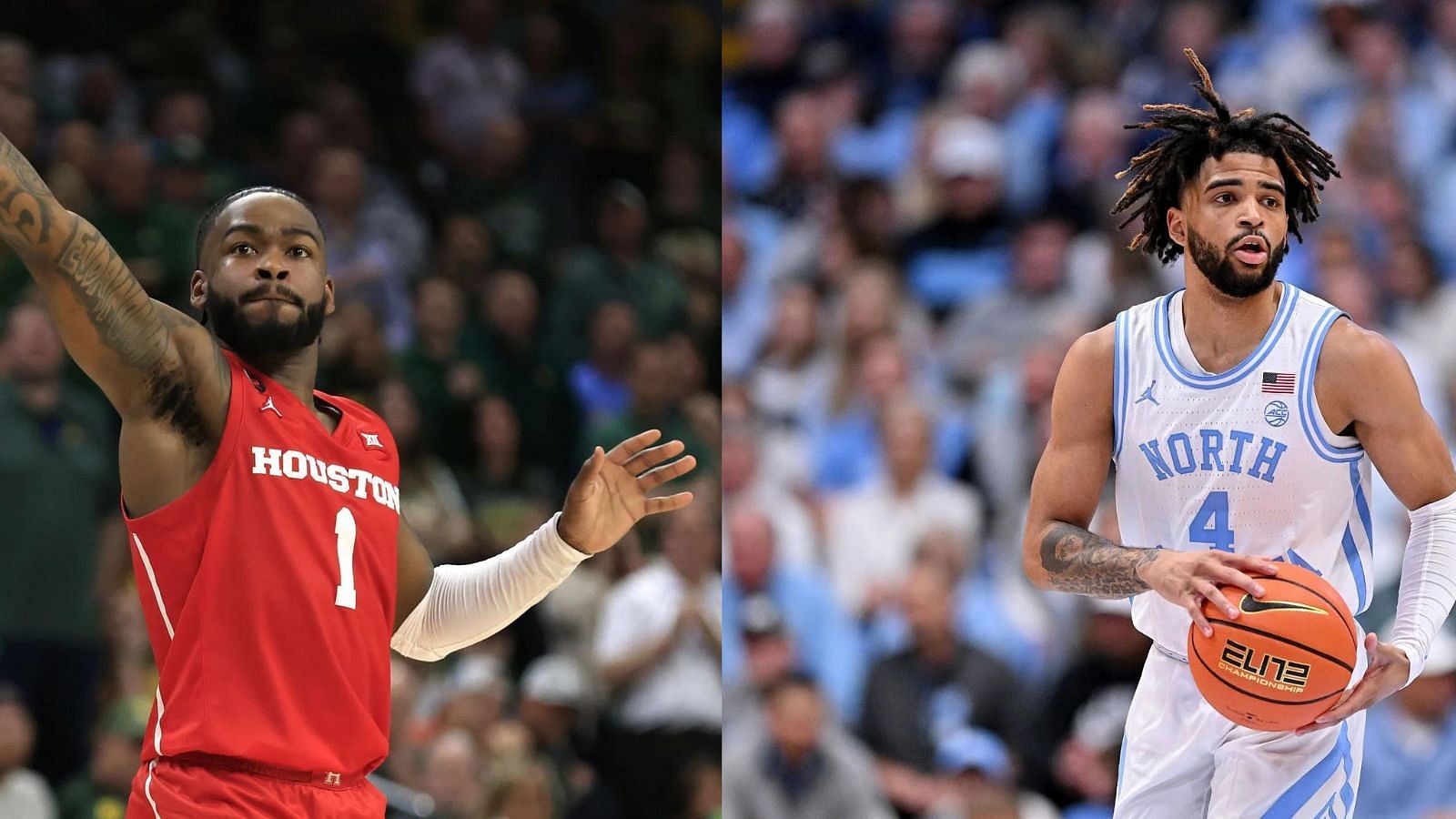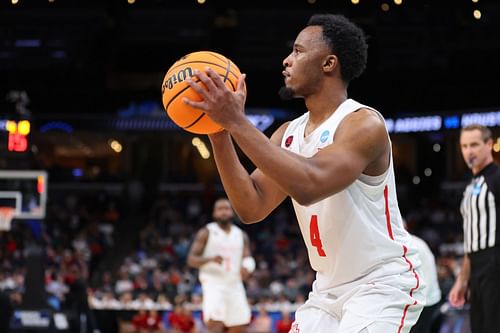
5 reasons why Jamal Shead won't win 2024 Naismith Player of the Year
Naismith Award finalist status aside, Houston's Jamal Shead has had a dream season. He led Houston to a No. 1 overall ranking during the season, engineered the best defensive team in college basketball and earned All-American honors. But he likely won't be the Naismith Player of the Year. There's certainly no shame in it. After all, only one player can be chosen as the Player of the Year.
5 reasons why Jamal Shead won't win Naismith Player of the Year

#5, Shead's prior career isn't exciting enough
This is mostly a minor matter. But while the Naismith award focuses on a single year, it is something of a career-related honor. There's certainly not a rule that the award requires a lengthy career of excellence. However, that seems to be the way the situation ends up.
Shead hasn't had a bad career, certainly. He's a three-year starter and has been a cog at point guard for some outstanding Houston teams. Shead hasn't won any prior All-American honors, though.
Before this season, his biggest honors were being a two-time All-American Athletic Conference selection and the AAC Defensive Player of the Year nod last season.
This season, as UH moved to the Big 12, he was a consensus All-American as well as the Big 12 Player of the Year and Defensive Player of the Year. He also, of course, was on the All-Big 12 first team and the All-Big 12 Defensive Team.
It's quite a jump from being all-conference in a non-Power Five conference and being the national Player of the Year. Shead's resume is good, but perhaps not good enough.
#4, He's not the leading scorer on his own team
Granted, it's not as if being the top scorer is a rule, but it's hard to argue against. If a player is the best player in the entire nation, why isn't he the top scorer on his own team?
Houston's top scorer is L.J. Cryer, who averages 15.5 points per game, just over a basket better per game than Shead (13.2 ppg). For that matter, Shead is barely ahead of Emmanuel Sharp (12.8 ppg). Many great players aren't necessarily elite scorers, from Magic Johnson to Dennis Rodman. But optics are something that matters for a national award.
Scoring 13.2 ppg hasn't kept Shead from being an All-American. But it probably will keep him from winning the Naismith Award.
#3, His defensive excellence isn't the stuff of Naismith Awards
Part of the reason that Shead is one of the four Naismith finalists despite his meager scoring is his outstanding defense. Shead is at the forefront of the top defensive attack in the nation (57.7 ppg allowed, 37.8% shooting overall). But defense, while it may win games, doesn't necessarily garner national awards.
The best argument in Shead's favor would be Anthony Davis, who won the Naismith Award at Kentucky despite scoring just 14.2 points per game. Davis made part of his claim on defense. The difference is that Davis was a historically great shot blocker, which provides an easy statistic to quantify. Shead is just a brilliant man-to-man defender.
While Shead's defense gives him genuine value and worth, it's worth that's hard for award voters to understand. That anti-defense prejudice will go against him and ensure that he doesn't win the Naismith Award.
#2, Houston isn't actually the nation's best team
Not unlike the Heisman Trophy, there's something of a prejudice toward giving the Naismith Award to the best player on the best team in the country. While Shead has helped Houston to reach the No. 1 spot and earn a No. 1 seed in the NCAA Tournament, there's a problem. The Cougars aren't the clear No. 1 team in the country.
Houston was No. 1 for three weeks in the AP poll. The top two teams in the nation are UConn and Purdue, with Houston generally behind them. That's not a knock at the Cougars. It's certainly arguable that the NCAA Tournament field consists of those big three and everyone else. But the Cougars are the least remarkable of that big three.
A defensive standout who doesn't lead a non-top team in scoring is probably not going to with the Naismith Award. There are several points here that could justify Shead, but the absence of any of them will certainly hurt him.
#1, Because Zach Edey came back to school
Another issue that Shead has to battle that most Naismith candidates don't face is competition from the returning Naismith winner. A season ago, Purdue center Zach Edey won the Naismith Award. But then he returned to school.
It's not the only time a Naismith winner returned to do battle again. North Carolina's Tyler Hansbrough and Arizona's Oscar Tshiebwe also did so. But it's certainly a hurdle to overcome, particularly since Edey had an even better season and Purdue is one of the top two teams in the nation.
Does Edey's return guarantee him another Naismith Award? Of course not. But it presents yet another issue for Shead to deal with in his candidacy. It makes a long shot to win the award a bit longer.